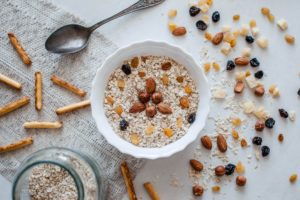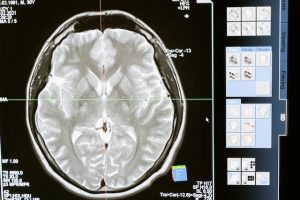Are you frustrated by how fast – or rather slowly – your hair is growing? Discover three factors that could be slowing your hair growth and how to speed it up.
Table of Contents
What affects the speed of hair growth?
We all have around 100,000 follicles on our scalp that take it in turn to grow hair. Although it is dead by the time it breaks the surface, hair will continue to get longer as it is inched out before finally falling out when the follicle becomes inactive. When working normally, follicles will become active again following a period of inactivity.
For most people, hair grows approximately half an inch per month (or six inches per year). However, internal and external factors can cause this to be faster or slower than the average.
Genetics
Genetic factors play a part not only in the type of hair we have but also in hair growth and loss. People with higher levels of dihydrotestosterone (DHT) will experience thinning and balding because the hormone shrinks and can close the hair follicles.
Health conditions
In addition to genetics, medical conditions seemingly unrelated to the scalp can slow or stop hair growth. These include having an under or over-performing thyroid and conditions that attack or suppress the immune system, like lupus. Other more obviously connected conditions include alopecia and scalp infections.
When the immune system is stressed, it can cause telogen effluvium. This prompts hair roots to return to the rest period too early, leading to scalp hair loss of up to 70% in just a few weeks. Severe infections that cause a high fever, major surgery, and childbirth can all cause this to occur, too. After a few months, these follicles will begin working again.
Environmental factors
While genetics and medical conditions are largely outside of your control, several environmental factors impact hair growth, and each individual can manage them. These factors range from sleep, food, and exercise to stress and climate.
Solutions for slow hair growth
Diet
A diet rich in nutrients is essential to hair follicle health. You can take hair loss vitamins designed to protect follicles and improve their overall performance. You can support this by eating a diverse range of plants, including vegetables, fruits, and pulses.
Rest
Proper rest and sleep are also essential to promoting healthy hair growth. The body recovers and repairs more quickly when the mind is quiet. Building a good sleep routine will also help minimize and manage stress, which can stall or slow hair growth.
Exercise
Finally, make sure you’re getting plenty of exercise. This helps to stimulate blood flow for better scalp oxygenation and distribution of nutrients.
Featured Image by Engin Akyurt from Pixabay




